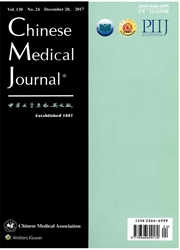

 中文摘要:
中文摘要:
抗中性粒细胞胞浆抗体(ANCA)相关小血管炎(AAV)是一类常见的自身免疫性疾病,肾脏是其最常受累的器官之一,进展迅速,预后凶险。由于其肾脏病理特征为“寡免疫复合物沉积”,因而以往关于补体在本病发生中的作用一直被忽略。但是,近年来越来越多的研究证据表明补体、尤其是补体旁路途径的活化在AAV的发病中发挥了重要的作用,其中补体旁路途径活化片段Bb及关键调节蛋白H因子水平与AAV患者疾病活动程度、肾脏损伤及预后相关,可能成为反映疾病活动性的生物标志物。体外及动物实验均证明了补体活化的终末产物C5a与中性粒细胞表面的C5a受体相互作用在AAV的发病中发挥了关键的作用。ANCA,中性粒细胞,和补体三者相互作用,形成一个正反馈环路,是参与AAV发病的关键因素。近年来,以补体C5a受体为靶点的治疗(CCX168)应运而生,初步结果显示出了其治疗AAV的有效性和安全性。开展补体系统检测对于评估患者病情及预后,尤其是对于监测补体治疗反应可能具有重要意义。
 英文摘要:
英文摘要:
Anti-neutrophil cytoplasmic antibody (ANCA)-associated vasculitis (AAV) is a group of autoimmune diseases with rapid progression and poor prognosis. The histopathological hallmark in the kidneys of patients with AAV is " pauci-immune" necrotizing crescentic glomerulonephritis, therefore complement was previously suggested not to play a major role in the disease development. However, in the recent years, accumulating evidence from both experimental and clinic study has strongly incriminated alternative complement pathway activation as critically important in the pathogenesis of AAV. In patients with AAV, plasma levels of Bb and FH, components of the alternative complement pathway, are associated with disease activity and prognosis, which might be useful biomarkers in monitoring systemic disease activity and renal disease activity in AAV. The complement activation product CSa and its interaction with CSa receptor play a central role. It is suggested that neutrophils, ANCA and complement system form a positive feedback loop contributing to the development of AAV. Preliminary data of two clinical trials have demonstrated effectiveness and safety of C5a receptor blockade in patients with AAV. Therefore, measurement of complement biomarkers will be helpful in assessing the disease activity of patients and be of great importance for monitoring the efficiency of complement-targeting therapy in the future.
 同期刊论文项目
同期刊论文项目
 同项目期刊论文
同项目期刊论文
 期刊信息
期刊信息
